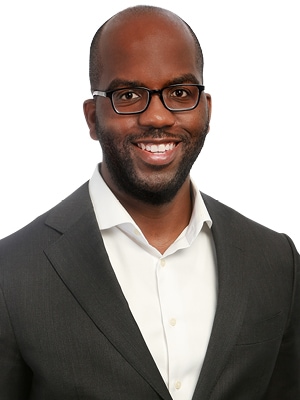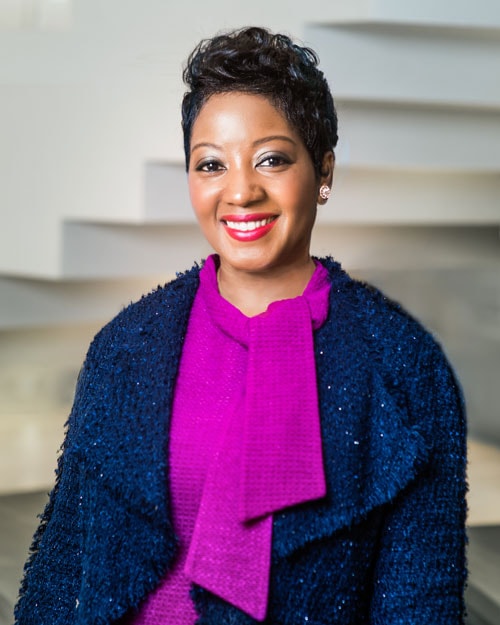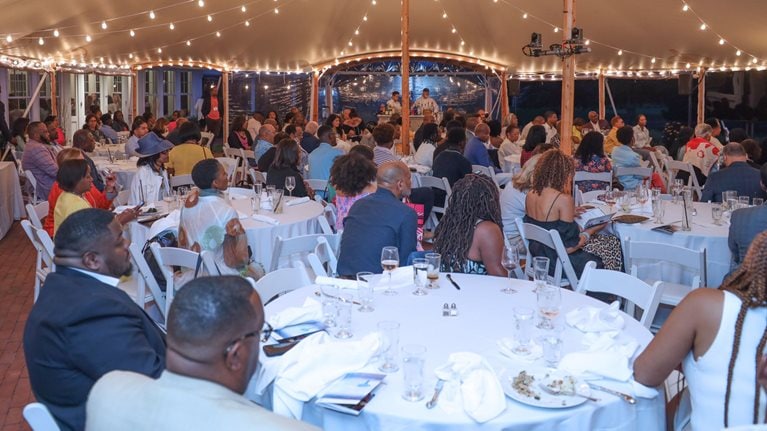What happens when Black executives, government officials, nonprofit leaders, and scholars join forces to accelerate Black economic mobility? We’re beginning to find out. The Black Economic Forum (BEF) recently marked its fifth anniversary. The annual event convenes Black leaders from the public, private, and social sectors—drawing over 200 attendees this year—partnering to increase economic mobility in US Black communities and support the next generation of Black businesses and entrepreneurs.
“The vision was that this would be a research-backed event, where people wouldn’t just connect, but generate ideas and take action,” says Duwain Pinder, a McKinsey partner who’s worked on BEF since its inception in 2018.

BEF grew out of the Summer Executive Workshop Series, an annual convening on Martha’s Vineyard of Black leaders hosted by the Beta Iota Boulé Foundation. The oldest Black fraternity in America, its work focuses on leadership development. Its former leaders saw an opportunity to partner with the Executive Leadership Council, a national organization composed of current and former Black CEOs and senior executives. McKinsey joined as a knowledge partner to provide insights-based recommendations to advance the mission of Black economic mobility.
This unique model is what attracted Dr. Cindy Pace, MetLife’s global chief of diversity, equity, and inclusion, to BEF.
“The conversations aren’t philosophical—they get into micro actions you can immediately take into your organization,” she says. “It’s an intimate setting with Black entrepreneurs, executives and CEOs and other leaders. I’d never been to this kind of event before.”
McKinsey’s research on investing for equity helped Cindy find new avenues for meeting MetLife’s DEI goals.
“McKinsey transcends being a professional services firm. It’s a thought leader in Black economic mobility,” says Cindy. “They’ve pushed us to think differently about Black consumers, supplier and business diversity—and to take that into our workplaces.”

The firm’s research report Race in the workplace: The frontline experience provided an ‘aha’ moment for Cindy: Only 4 percent of frontline workers move into corporate roles, despite 70 percent reporting they would like to, due in part to frontline workers being less likely to understand and be involved in a company’s DEI initiatives.
“We didn’t want this to be our ‘broken rung,’” Cindy says. “We realized there was a low-hanging fruit of doing a better job communicating our message.”
MetLife has since implemented digital tools designed for employees in call centers and customer service areas to better engage with DEI efforts with the goal of career advancement.
Supplier and business diversity is top of mind for companies like MetLife. Duwain says it has always been a topic of importance at BEF and was a major focus this year.
“Corporations can have a major impact on economic mobility through the suppliers they ask for, and not just food or janitorial services, but professional services,” says Duwain. “This has downstream impacts on the broader economy. That’s a specificity we didn’t have five years ago that’s really helping corporations take action.”
For MetLife’s part, the company’s Supplier and Inclusion Development Program elevates diverse suppliers across the company’s supply chain, ultimately advancing long-term economic growth in the communities where they live and work. Since the inception of the program in 2003, the company has engaged with over 200 diverse business partners, spending approximately $3.5 billion. Earlier this year, MetLife announced a commitment to reach $5 billion in spend with diverse suppliers by 2030, and annually report the economic impact of MetLife’s diverse supply chain.
“Spend on procurement isn’t the same as investment in businesses,” Cindy says, citing McKinsey’s research on supplier diversity. “If we invest in our business suppliers so they can grow, they’ll hire within their communities and make a broader impact.”

BEF is focused on its agenda of action and progress, expanding beyond the summer convening. It recently held its first city-specific meeting with cross-sector leaders in Detroit, and industry roundtables on technology and education, with more in the works.
Duwain, whose work at McKinsey is focused on cross-sector inclusive growth and includes work with higher education institutions, among them historically Black colleges and universities, says the continued success of the forum is vital for doing this kind of work.
“The forum is a way to ensure that I am understanding the needs of the leaders who are living this day to day,” he says.